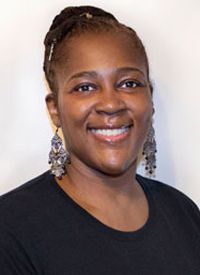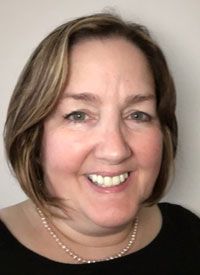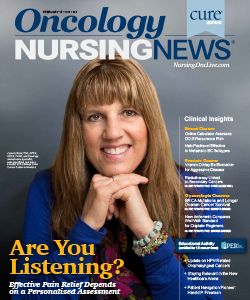Answering Those "Million Dollar" Questions
Two nurse navigators report on the importance of equitable access to care, regardless of a patient's social connections, socioeconomic status, of philanthropy history.
Angela Moore, BS

Angela Moore, BS
Sandra Blackburn, MSW

Sandra Blackburn, MSW
Equitable access to care is a hallmark of ethical medical practice and the profession of patient navigation is a vanguard of this principle. Because navigators often work as part of an interdisciplinary team, our healthcare colleagues also have an important role in assisting us with ensuring each patient’s access to care, regardless of socioeconomic status, philanthropy history, or other “connections” to a healthcare facility.
Many patients have contacted our navigation office after being referred by someone, such as a benefactor or the friend of a friend of a friend of a staff member. We are unsure of the conversation that occurred before the call to us; however, we know that some patients feel confident that their connection to our facility will assure a flawless medical experience regardless of how they are connected. One of our tasks as navigators is to mitigate these expectations.
At our internationally-renowned cancer center, we encounter people who others may have labeled a VIP or assured of expedited care. When we initially learn of their expectations, which range from amusing (all-hours access to the doctors via e-mail and/or cell number), to challenging (a request for a private room when the hospital is full), to the near-impossible (a same-day or next-day appointment with a provider who is scheduled 6 months out).
Once in a while a request is so absurd that it astounds us. We recently navigated a patient we’ll call Mrs. X. She was referred to us by one of our major benefactors, a long-time friend. She needed a surgical consultation for a biopsy. According to her husband, Mrs. X. was always a person with very high anxiety, and this was further exacerbated by the possibility of a cancer diagnosis.
We first spoke with Mrs. X on a Wednesday. Following protocol, her imaging was sent to the surgical clinic director. He was at an out-of-state conference but kindly reviewed from afar. This was our first special accommodation. He determined it was appropriate to schedule her for a first clinic visit at the end of the following week. However, Mrs. X could not wait that long and requested an earlier appointment, which the practice manager identified (accommodation number 2).
When the benefactor heard of this ‘delay’, she called the navigator, asking, “Why should she have to wait a week?” The appointment was then moved up to see a different provider in 2 days, a third accommodation.
At that appointment, the patient learned she would need a surgical biopsy. The provider she saw in the clinic performs biopsies only 2 days a week, so Mrs. X was scheduled for 1 week later. However, the patient was anxious and asked the provider to be scheduled sooner, a fourth accommodation.
Nevertheless, Mrs. X. was not pleased with the late time. She later reported to the navigator that she asked the provider the following: “If I ask [Mrs. Benefactor] to give [your institution] a million dollars, could I have an earlier time?” She reported that the physician was kind, but informed her that other patients were scheduled, and he could not move her to an earlier time.
We spoke with the physician about the encounter. He recalled that he thought that the patient was making the statement in jest, but even if she was not, he would have replied in exactly the same way. He remembered telling Mrs. X that other patients have the same concerns and are also anxious. He further explained that he has a commitment to the other patients who had already been scheduled.
The provider also said that he thought that it was not appropriate for patients to exert pressure at the expense of another patient, especially because of a social connection or higher socioeconomic status. When he moved Mrs. X up to an earlier day, it was only his own busy schedule that was affected, not another patient. He added that there is a limit to what can be done to accommodate this type of request from a patient. Hearing this from a provider was reassuring to us as navigators that he is providing optimal care to all patients, the basis for ethical medical care.
This philosophy of our physician colleague keeps the focus on doing good for all as a duty and a moral standard and reminds us that all practitioners involved in healthcare gatekeeping have an obligation to provide equitable care, and that it can be done in a compassionate manner.
Other patients with whom we have interacted over the years have told us that they would be happy to make a financial gift to our cancer center at the same time that they are requesting our help with an appointment. Our protocol is to defer the financial discussion to our development office and also for a later date. We employ this tactic consistently to avoid entangling a person’s healthcare needs with a financial incentive for our institution. Patient navigation must be detached from philanthropic activities.
Many times during our effort to schedule with a person’s preferred provider or timeframe, we encounter constraints with a physician’s vacation or conference schedules or with a limited number of patients that can be accommodated on a particular day. One way around this is to look for options at another location within our health system, or an earlier appointment with another provider.
Routinely our patients have an expectation of a flawless and extraordinary healthcare experience, and they may ask us impossible questions. We can never promise or guarantee that a person’s expectation for a particular provider or next-day appointment can be met. Difficult questions demand our own million-dollar answer: We can only promise to try our best.
Angela Moore and Sandra Blackburn are patient navigators the Abramson Cancer Center at Penn Medicine.




